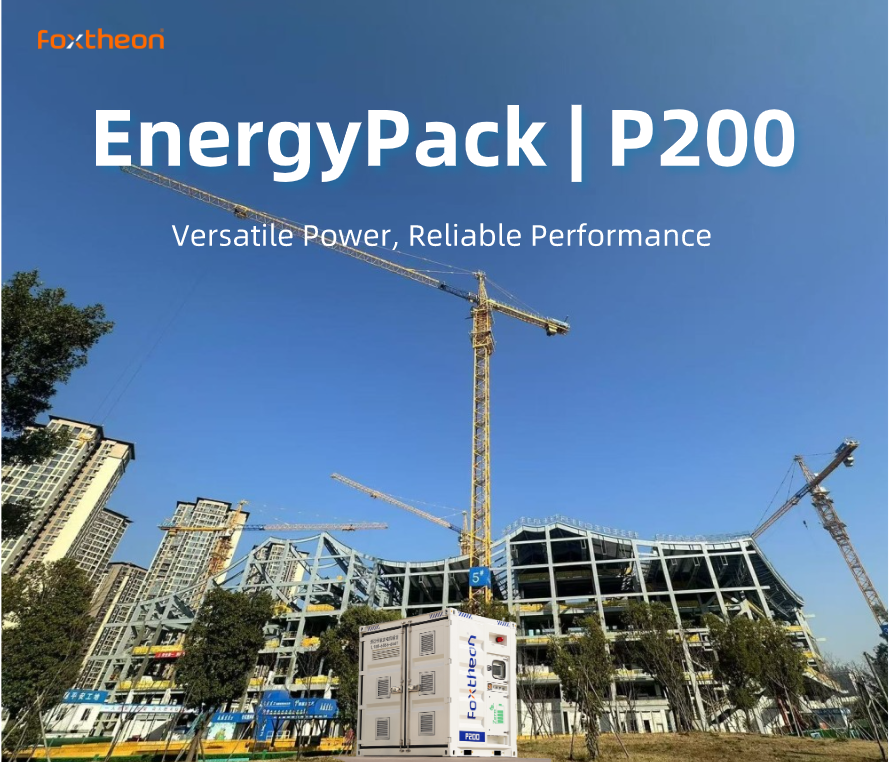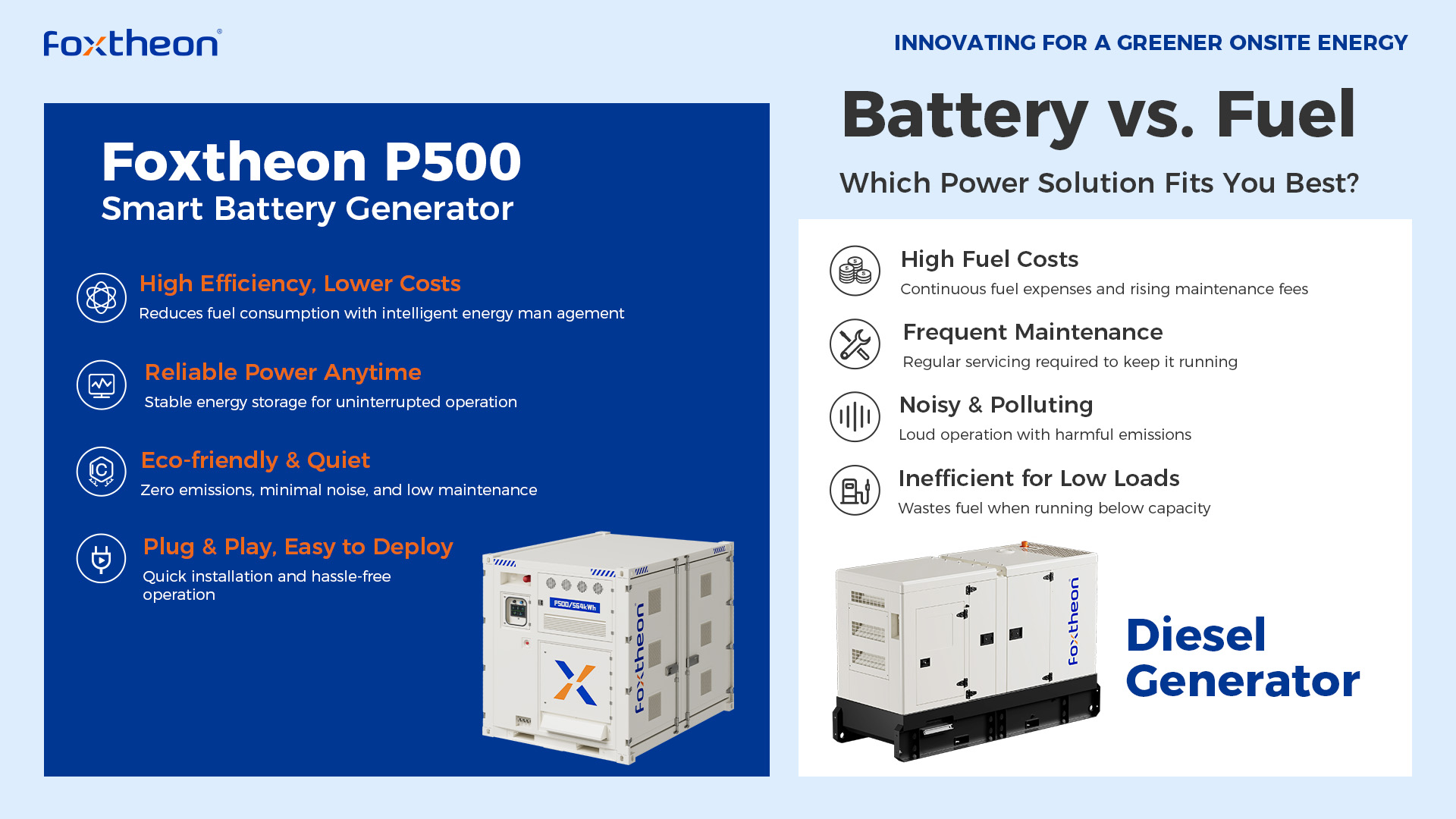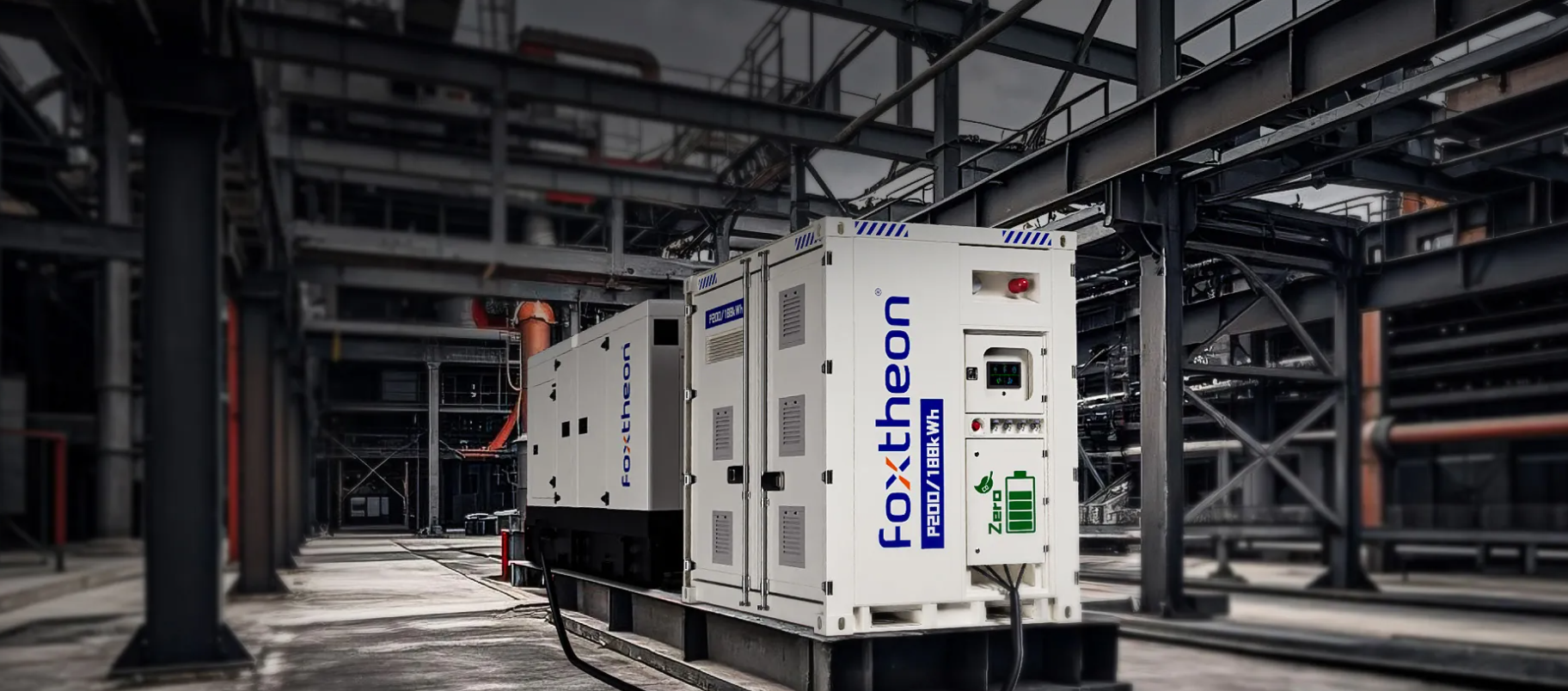Generator vs. Battery Energy Storage: Which is the Best Power Partner for Your Tower Crane?
The hum of a diesel generator is a familiar sound on construction sites worldwide. For decades, it has been the default power source for heavy machinery like tower cranes. But as the industry pushes towards greater efficiency, cost-effectiveness, and environmental responsibility, a powerful new contender has emerged: the Battery Energy Storage System (BESS).
The choice is no longer just about getting power; it’s about getting smart power. So, when it comes to energizing your critical tower crane operations, which solution truly comes out on top? Let’s break down the comparison between traditional generators and a modern hybrid BESS solution.
The Head-to-Head Comparison: Generator vs. BESS
To make an informed decision, it’s crucial to look beyond the initial purchase price and evaluate the total value proposition across several key areas.
1. Cost & Return on Investment (ROI)
- Diesel Generators: The upfront cost might seem lower, but the Total Cost of Ownership (TCO) tells a different story. You are constantly battling volatile and rising fuel prices. Add to this the frequent need for maintenance—oil changes, filter replacements, and engine servicing—and the operational expenditure (OpEx) quickly accumulates. Inefficient power delivery during low-load periods means you’re often burning fuel just to keep the engine running, wasting money every minute.
- Battery Energy Storage Systems (BESS): While the initial capital expenditure (CapEx) for a BESS can be higher, the savings are immediate and substantial. A hybrid BESS solution intelligently manages power, drawing from the grid during off-peak hours or from a smaller, supplementary generator that only runs at its most efficient point. For instance, a system like the EnergyPack P200 can slash fuel consumption by up to 80%. It eliminates idling, reduces generator runtime, and drastically cuts maintenance costs. The ROI is no longer a question of if, but how soon.
Winner: BESS, for its significantly lower TCO and rapid ROI.
2. Efficiency & Performance
- Diesel Generators: Generators are notoriously inefficient, especially under the variable loads of a tower crane. They must be oversized to handle the peak startup current of the crane’s motors, meaning they spend most of their time operating in a low-efficiency load range. This leads to wasted fuel and “wet stacking,” a condition that damages the engine over time.
- Battery Energy Storage Systems (BESS): BESS technology excels here. It delivers instant, high-quality power precisely when needed to handle the crane’s peak loads. In a hybrid setup, a much smaller, more efficient generator (or a grid connection) can run consistently at its optimal point to charge the batteries. This “load-leveling” capability ensures the power source is never under-utilized. Companies like Foxtheon are engineering advanced systems that optimize this energy flow, ensuring every kilowatt is used effectively and the crane receives stable, reliable power for smoother and safer operation.
Winner: BESS, for its superior efficiency and ability to provide stable, on-demand power.
3. Environmental Impact & Social Responsibility
- Diesel Generators: The environmental drawbacks are significant. They produce constant carbon emissions (CO₂), nitrogen oxides (NOx), and particulate matter, contributing to air pollution. The perpetual noise is also a major issue, often leading to restrictions on working hours and complaints from nearby communities.
- Battery Energy Storage Systems (BESS): This is where BESS truly shines. When operating, a BESS is silent and produces zero local emissions. This makes it ideal for urban construction sites and projects with strict environmental regulations or night-work requirements. By adopting a hybrid BESS solution, you are not just saving money; you are building a greener, more community-friendly brand image. It’s a tangible commitment to sustainability that resonates with clients and regulators alike.
Winner: BESS, by a landslide.
4. Power Quality & Reliability
- Diesel Generators: The power supplied by a generator can fluctuate, causing voltage drops and frequency variations. This instability can stress the sensitive electronic components of modern tower cranes, potentially leading to premature wear and unexpected faults.
- Battery Energy Storage Systems (BESS): BESS delivers pure, stable sine wave power, just like the grid. This high-quality electricity protects the crane’s motors and control systems, enhancing operational reliability and extending the lifespan of your valuable assets. An advanced system like the EnergyPack P200 ensures that even during demanding lifts, the power supplied to the crane remains perfectly stable.
Winner: BESS, for providing superior, grid-quality power that protects your equipment.
The Verdict: The Future is a Hybrid BESS Solution
While generators have served us in the past, the data is clear: for modern tower crane applications, a hybrid BESS solution is the demonstrably superior choice. It’s not just a battery; it’s an intelligent power management hub that delivers unparalleled benefits in cost, efficiency, and sustainability.
By integrating a cutting-edge system from pioneers like Foxtheon or deploying a robust unit like the EnergyPack P200, you are investing in a future-proof technology that will lower your operating costs, enhance your operational capabilities, and solidify your reputation as a forward-thinking industry leader.
Ready to make the switch from the noise and expense of generators to the silent, efficient power of a BESS? It’s time to choose the smarter power partner for your tower cranes.


